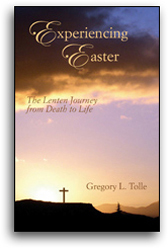SermonStudio
Experiencing Extravagant Worship
Sermon
Experiencing Easter
The Lenten Journey of Death to Life
Gentlemen, imagine that you want to take your wife or girlfriend on an extravagant date. Perhaps it's a major anniversary or the right time to pop the question. At any rate, you want to show how much you love her. What would you be willing to spend? Fifty dollars or maybe even $100 a plate? And you'd probably want to give her a dozen roses, wouldn't you?1


